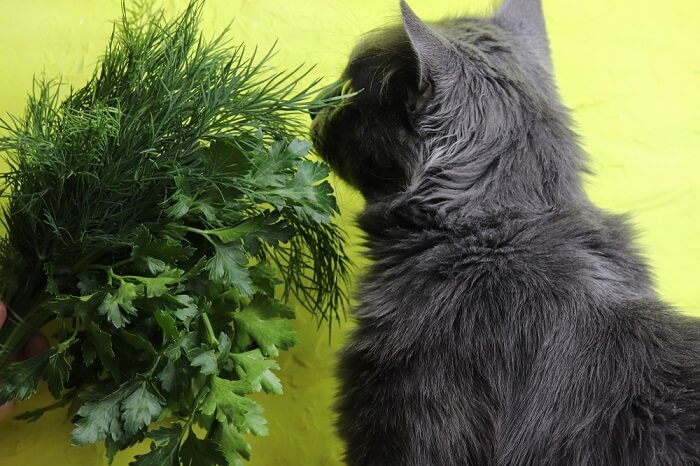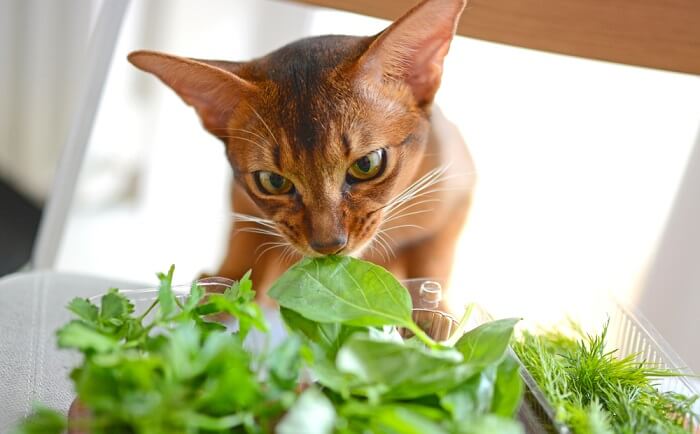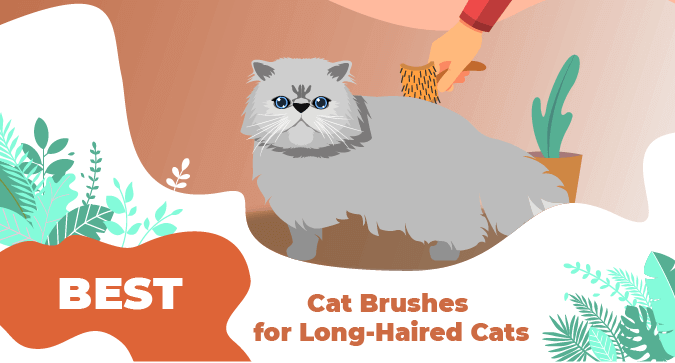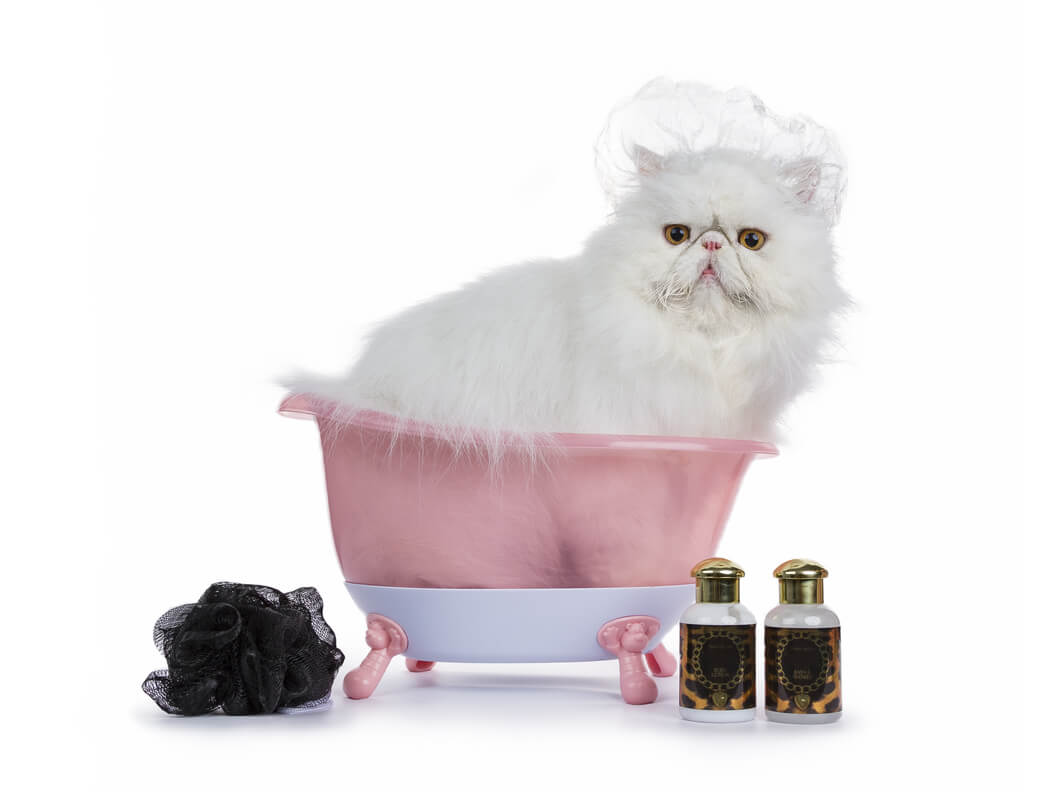Can Cats Eat Cilantro?
This page contains affiliate links. We may earn money or products from the companies mentioned in this post through our independently chosen links, which earn us a commission.
Cilantro is a herb that has a distinct flavor. Besides its flavor, cilantro is known for its numerous health benefits as well.
As humans, we have a lot to gain from eating cilantro and it is a common ingredient in most Asian, Middle-eastern, and Mexican dishes. But what about our furry friends? Can felines have cilantro and enjoy the same benefits as humans do?
Is Cilantro Safe For Cats?
There are health experts who believe it is ok to allow cats to have cilantro and the American Society for the Prevention of Cruelty to Animals does not list cilantro as a harmful plant to cats.
This should, without a doubt, eliminate the fear of allowing your cat to nibble on some cilantro leaves. However there is the danger of giving your cat too much cilantro. Health experts who are against cats eating cilantro warn that there is a 1% chance your cat will get sick from eating this herb.
A cat that eats too much cilantro is at risk of getting heart arrhythmia or gastrointestinal disease. Also, excessive consumption of cilantro can cause upset stomach in cats. The plant may irritate the cat’s tummy causing instant diarrhea and even vomiting.
Health Benefits Of Cilantro For Cats
Cilantro contains many vitamins and minerals, and that’s why it is an impressive herb that offers many health benefits. The plant’s leaves are particularly rich in vitamin A, vitamin C, and vitamin K.
It also has moderate content of dietary minerals. These vitamins are actually essential for your cat. For instance, the vitamin A is required for vision development in cats and it also offers benefits to your cat’s immune system.
The vitamin K that is present in the cilantro aids in maintaining a blood clotting system in cats and enhances their liver health. It is also a good source of antioxidants and folic acids and so, it comes with anti-inflammatory properties that aid in promoting kidney health and also, urinary health in cats.
Although cilantro is an excellent herb that provides many health benefits to cats it should be avoided for your car if he or she has kidney problems.
Now the seeds are different from the fresh stems and leaves, which is called coriander. But, The seeds do have a significant amount of dietary fiber, calcium, selenium, iron, magnesium, and manganese.
Should Cats Eat Cilantro?

As mentioned, cilantro has many of the vitamins and minerals that your cat can get in their natural diet, but it can be used as a supplement or the occasional treat if your cat likes nibbling on it.
If your cat shows no interest in eating cilantro, there is no need to force it on him. But if they do enjoy it, you can give them a stem or a few leaves to chew on. You can also mince some leaves and add them to their food. You may want grow a small plant in your home for them to chew on whenever they feel like it.
Can Kittens Eat Cilantro?
Kittens are more susceptible and sensitive to issues than adult cats because they are not fully developed. While uncommon, any pathogens on cilantro leaves are more likely to affect a kitten than an adult cat.
In addition, kittens may be more sensitive to the laxative effects from the fiber in cilantro. This could cause diarrhea, or possibly lead to dehydration and a trip to your veterinarian.
What Happens If A Cat Eats Cilantro?
Cilantro is safe for cats according to ASCPA but if your cat eats this herb, there is a chance he may have irritation in the stomach as mentioned above. There is also a slight chance that he may get gastrointestinal irritation and cardiac arrhythmia as well.
In general, cilantro is safe for cats to eat and the risks we discussed above are the very rare. You should watch your cat’s behavior when giving him cilantro for the first time. If you are still worried about the 1% probability of your cat getting ill eating cilantro, you could always switch to other healthy herbs that are 100% safe for cats.
Alternatives To Cilantro
Because every cat is different, he may not like the taste of cilantro. However, there are other plant options they may enjoy.
The SPCA says the following herbs are safe for cats:
- Catnip
- Licorice root
- Cat thyme
- Dandelion root
- Valerian
- Goldenseal
- Chamomile and calendula
You can feed your cat any of these herbs and not worry about any side effects.
Other Harmful Plants You should Never Give To Cats

There are some harmful plants that are not good for cats to eat. There is a list of plants like onion, garlic, and olives could be toxic to cats.
Onions can help to break down red blood cells in cats. In turn this can cause anemia in cats.
Garlic and olives can cause gastrointestinal upset. Meaning your cat will end up with a tummy upset.
Mint and oregano are also unsafe for cats. Oregano can cause poisoning in cats and the same goes for oregano oil. If your cat has oregano poisoning, they will experience instant nausea and vomiting.
There is an herb called rhododendron cats should never eat and they should also stay clear of Aloe Vera, Anemone, Cyclamen, Castor Bean, Ambrosia, Mexicana.
Final Thoughts
Cilantro is usually safe for cats, but not all cats. Most likely your cat will not get sick right away from eating cilantro unless they are sensitive to it.



